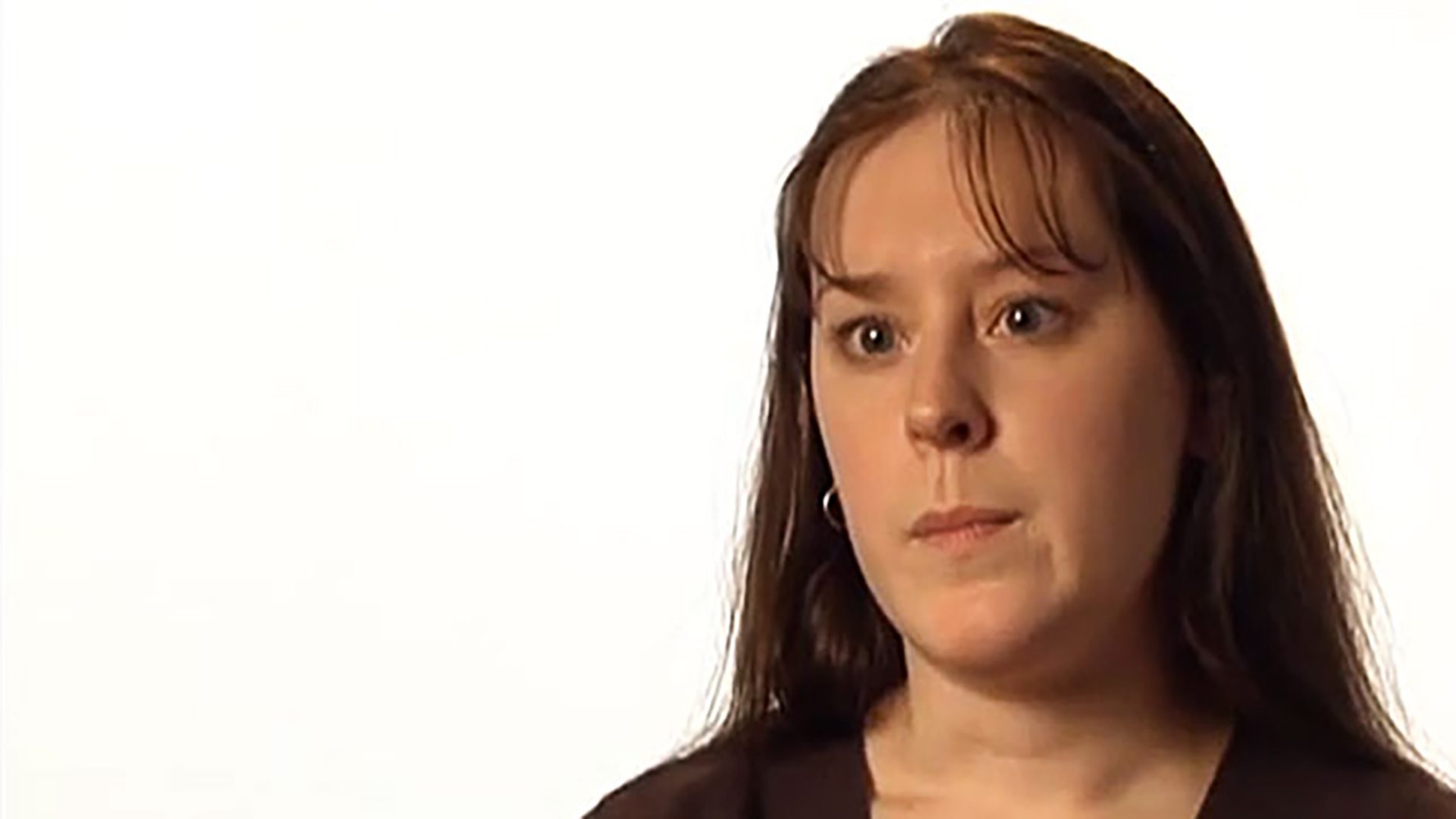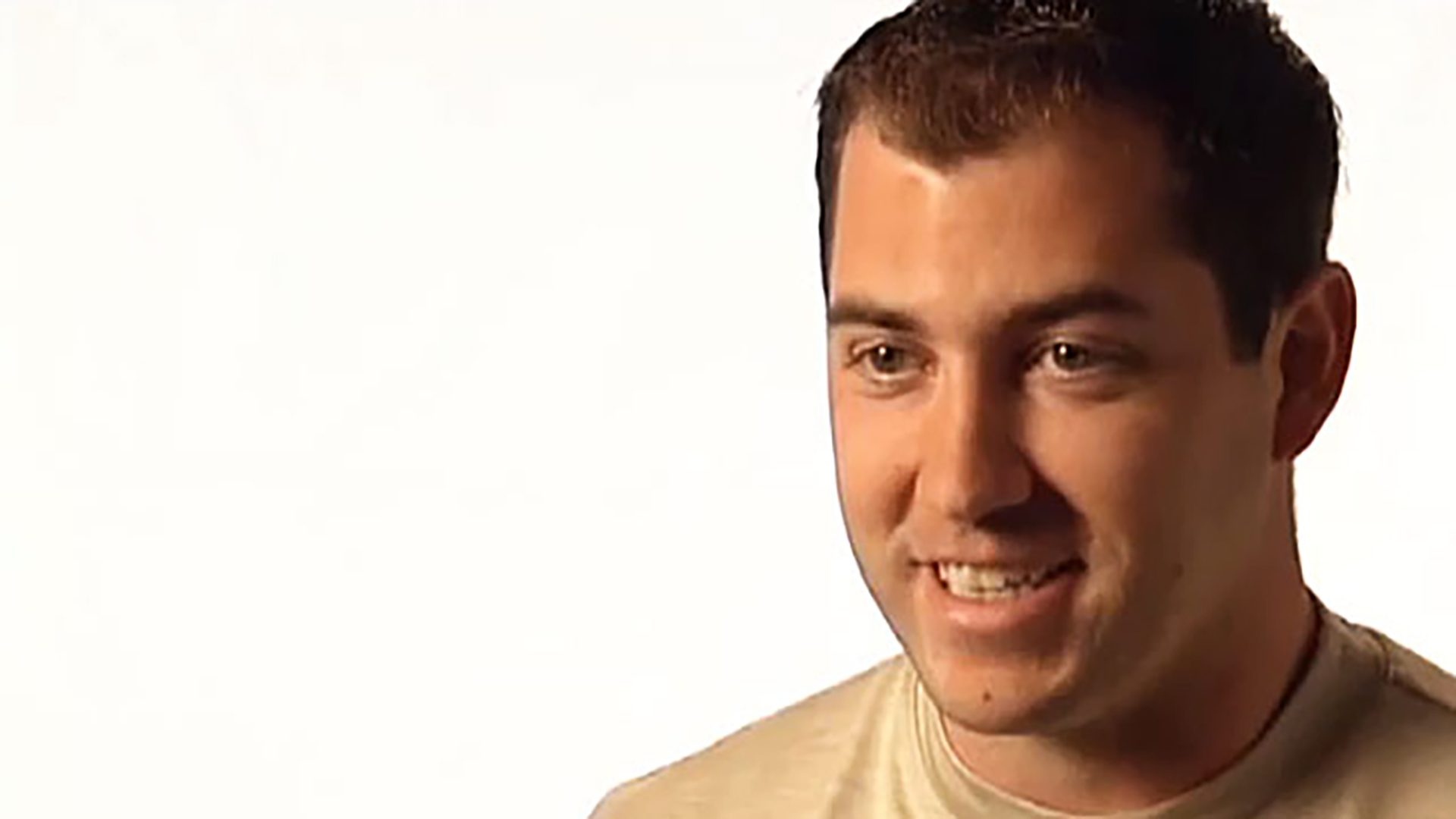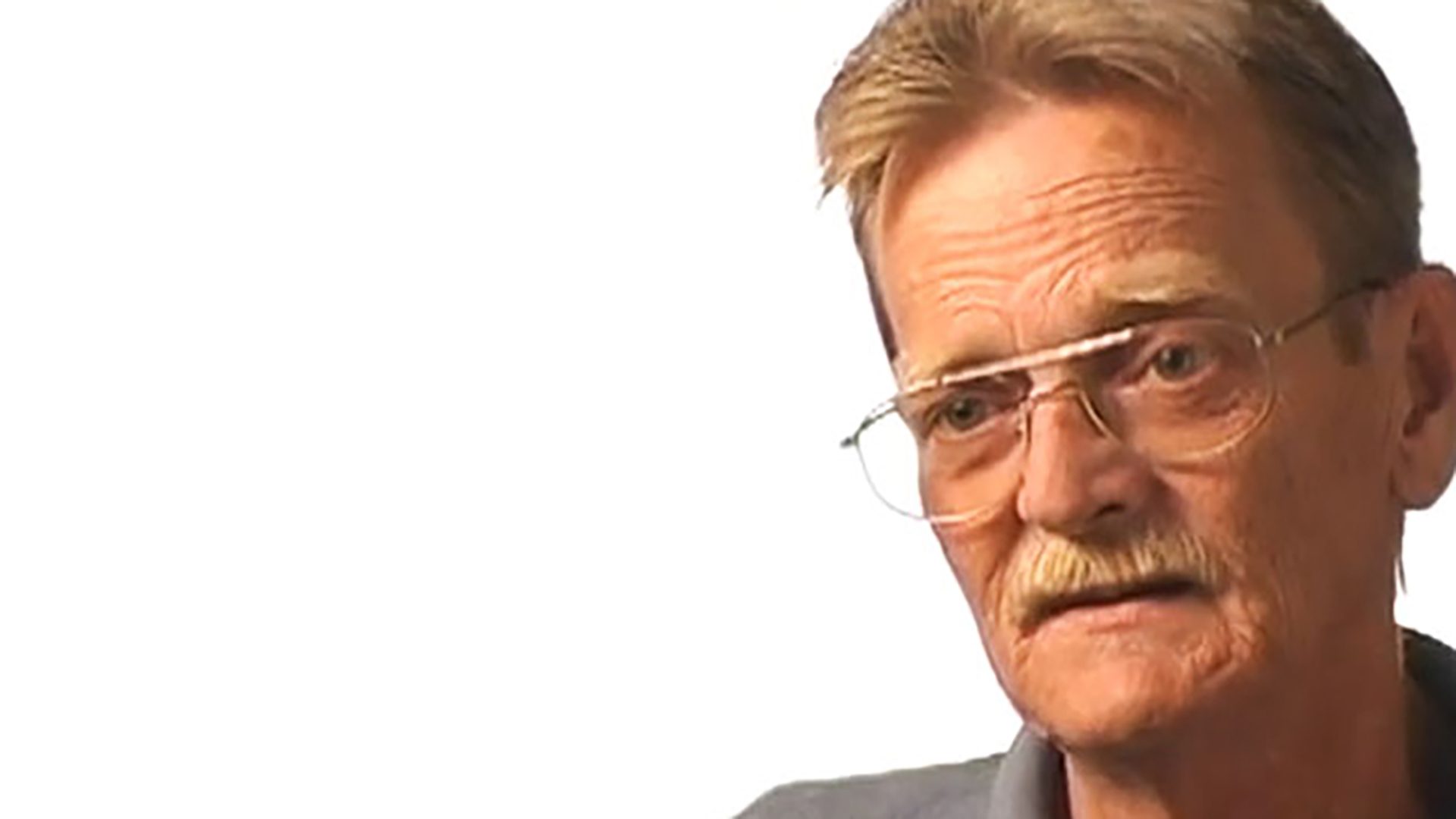Survivor Interview – Laura K.
Neuroblastoma survivor Laura discusses aftereffects of radiation therapy, maintaining her treatment history, and telling others that she is a survivor.

I became a cancer survivor on May 23, 1982, when I had my neuroblastoma removed at Children’s Hospital in Boston.
As a child, you really are oblivious to what’s going on around you. Having to be in this kind of environment, it’s not a traditional environment for a child. At the time, I really didn’t have any idea what was going on. I knew something was wrong, just judging from my parents’ reaction and obviously being in doctors’ offices. When I had my surgery, it was on my fifth birthday, so leading up to it, I was four. Four and five was when all this took place. When I had my surgery, I remember the day. I remember the day vividly. When I tell people, they’re surprised that I can remember things like that. Throughout the rest of my life, cancer has been a part of my life, but it hasn’t been my whole life. I had surgery and radiation treatment. It’s unclear what the ramifications of the radiation therapy are at this time. I’ve had some problems. I had a cyst on my heart that had to be removed, and they weren’t sure if that was from the radiation therapy. My whole chest got radiated, so whether or not that was just a freak accident or a freak thing, they’re not sure. Throughout my life, I’ve had annual checkups, and it’s always been on my mind as far as, “Could this come up again? What’s gonna happen if I try to have children or things like that later on?” It’s always been on my mind.
Physical changes I wouldn’t say anything about, but mental and emotional changes. In my mind, I suppressed and tried to forget about everything that happened when I was a child. I remember there was one year in my life, probably my mid-teens, 16, 17 years old, where for some reason everything just hit me. It was just like, “Holy cow, I went through that whole thing.” I really started to get interested. I wanted to know all the treatments that I had and things to expect from the radiation therapy later on. After I had done my treatment, I was a normal kid. I did normal kids things and didn’t even give it a second thought. It was just when I had my awakening at 16, 17. I discovered that I was different from other kids. Knowing that I had cancer as a child might explain some of the things that I have, had, or will have in the future. I’ve become really aware of the things around me, as far as the little things in life, the unimportant things, like buying a $100 sweater instead of doing something else. I always try to take advantage of all the opportunities that I can do. Whether it’s going on a trip or taking a job or doing anything like that, I try to involve myself as much as possible, because you never know what’s gonna happen tomorrow. I can honestly say that I value life more and a part of me is thankful that I had cancer as a child, because I can value life better. I have a second chance, and I don’t want to waste it.
Especially from the radiation therapy, since it was focused on my chest, it’s breast cancer that I’m concerned about. Of course, the statistics are awful as far as the chance of any woman getting it, but to someone who has had radiation therapy, the chances are increased. So that weighs heavily on my mind a lot. I have annual mammograms that started when I was 20. You do monthly exams and educate yourself, if there’s anything you can do to reduce your chances, like a healthy diet and exercise.
I’ve never had a problem with my lungs. I’ve always had x-rays and things like that, but I’ve never noticed anything as far as exercising, being short of breath, or anything. My oncologist has never said anything or any other doctors, which is good.
I do worry about [second cancers]. I think it’s natural for me to worry about that and for anybody to worry about that. I know I can only do as much as I can, as far as the self-exams and getting my routine mammograms. If it happens, it happens, and you deal with it. You fight it just like you did your previous cancer, and you move on, hopefully.
The emotional issues and knowing that you are different. Just from looking at you, obviously, you can’t tell. It’s just an internal thing that you are aware of, and I have to go to the hospital every year. I have checkups, and how to explain that to people, why are you going here, and why do you have to go there? It’s another thing where every time I tell someone that I had cancer as a child, I’m never sure how they’re going to react. That’s something that I’m concerned with, not really afraid of, but it’s just something that is on my mind as well. I hem and haw and choose, “When do I bring it up? Who do I tell? Do I have to tell this person?” It’s really more of an emotional thing down the road for me.
It’s really a judgment call in my mind. If you’re interacting with someone and you know them well enough and you can share intimate details about yourself, it really can break down those communication barriers. If you’re willing to open up a little bit more, they might be as well. You can definitely gauge it yourself. I had to do that myself. Some of my friends I don’t even think know what I’ve gone through, but others want to know. They ask, they probe, and they want to know what happened. I can feed off of them and see how they’re reacting to talking about Lance Armstrong and the fact that he had cancer and is a well-known athlete. I see how they react to just talking about that kind of discussion and you can interject and be like, “This was me.”
I’m not embarrassed by it, and part of me is proud. I survived it. I’m here to tell the story. It’s funny when I tell people that I went through whatever I went through, and they almost look shocked and surprised that, “Oh, my gosh, you’re sitting in front of me.” It makes me feel good, because it is an accomplishment. It definitely is. I feel lucky that I can sit here and pass on the story.
Meeting people is not a problem. It’s just you get to the point where you feel like you should tell them or they should know. It’s like, “How do you approach the subject?” You can’t just be like, “So, when I was five, I had this.” How do you bring it up in conversation, to a point where not to make them feel uncomfortable and to make you feel uncomfortable as well? I haven’t perfected that yet, and I don’t know if you can perfect that. I would just try to gauge the relationship that we’re building and the friendship. I feel like you have to be friends first, and if you can share things as friends, then you can move on. I don’t think there is one right time to bring it up, but I haven’t had a negative response from any of men that I’ve dated, which is encouraging.
I think it’s a natural reaction from someone who’s had cancer or any other life-threatening illness. It’s just a thought that creeps in. Death is. Obviously, you can’t control that as well. You can do things to avoid it, but I don’t know. I think it’s just a natural result of beating a disease. You looked at it in the face. You looked death in the face and said no. [Survivor guilt] comes in waves. Every time I come for my annual appointments and you see all the other children, there is a degree of, “Why did I survive?”
I have my own insurance. I have a full-time job and I have my own insurance. It is a worry, and actually, it would probably be one of the main factors of me choosing a particular job. I’m lucky to say that I have 100% medical insurance through the state of New Hampshire. If I had to pay a portion of that, I would seriously consider finding another job, because of the whole situation. I feel very lucky to have medical insurance. I’ve never had a problem. I call up my PCP and say, “I’m going here for my annual checkup,” and she’s always been, “Okay. Here’s how to referral, and go ahead.” So I’ve never had any problems with that.
I have an older sister. She is 18 months older than me, and she lives in Connecticut. [We are] fairly close. Looking back, it’s actually hard to tell [if there was any difference in our relationship because of all the attention I got]. As kids, as siblings and being so close, you fight a lot, just because you’re siblings. You’re growing up, you’re trying to find out who you are, who they are. It’s a subject that I’ve never talked to her about, and she’s never brought it up either. I don’t know if she has any issues related to that. It appears she doesn’t, because she has had her own health issues. I really haven’t talked to her about it, and I don’t know if I would approach the subject. If she brought it up, definitely, I would definitely speak to her about it. But I don’t think we ever had any [issues]. If she thought that I was the preferred child or anything like that, we never had that conversation.
I think it’s a good relationship [with my parents]. Just like with any parent/child, it’s been stress at times. There are good and bad times, but overall, I think it’s an excellent relationship. I go to them a lot with problems, health related or otherwise, and they’re always there to help me out. They’re a good support system.
Survivorship means having a second chance and having an opportunity to do the things that you didn’t think you could. Survivorship also allows you to look at life in a different way than somebody who hasn’t gone through it. I don’t want to say that non-cancer survivors take life for granted, but in a way, I think they do.
Even if it’s the most menial task, when you finish it, it’s an accomplishment. When you complete it, it’s an accomplishment. Even if it’s doing laundry, going grocery shopping, even going to school, they are small things, but it’s just the fact that you’re able to do them. You can’t measure the importance of them. Even just taking out the trash, being able to lift the bag and walk to the corner of the street.
For parents, if they have a child that’s been diagnosed with cancer, no matter what age, it’s important that they know what’s going on. Kids are very aware of what’s going on around them. Kids need to be told what’s going on. Obviously, if they’re really young, I would wait and tell them when they’re old enough to understand what was going on. [They need] to know what kind of treatments they’ve had, surgeries, just for later in life, so that they’ll know when they’re going to doctors’ appointments by themselves. They’ll be able to say, “I had this, this, and this. I had this treatment, that treatment and on these dates,” just so that they have a record themselves. If they do have siblings, they need to be educated as well, so that they know what their brother or sister is going through. The sibling needs to know that they’re just as special.
I expect great things, no matter how long or short it is, but I try to do what’s good for me. The decisions that I make, I try to make the right ones, and I try to live life to the fullest. I do expect a lot out of it. I’ve been tested early, and I’m hoping that it will get easier.
My name is Laura Kieronski. I am 27 years old, and I’m a 22-year cancer survivor.

